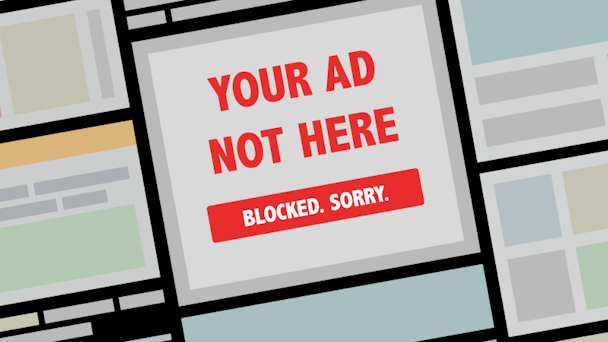‘The walled gardens of Facebook and Google are the real ad blockers’, warn publishers and ad tech vendors
The debate around ad blockers is a smokescreen for the real threat of online juggernauts like Facebook and Google to media owners’ advertising revenue, experts have warned.

‘The walled gardens of Facebook and Google are the real ad blockers’, warn publishers and ad tech vendors .
The “real ad blocker is Facebook”, claimed Gary Bramall, chief marketing officer at Hailo at the Guardian’s Changing Media Summit. Speaking on a panel alongside senior executives from the publisher, Mindshare and Rubicon, the marketer branded “ad blockers” a red herring, warning that the sprawling ecosystems of the world’s biggest technology platforms are sucking the value out of the advertising market for publishers and ad technology vendors.
The threat of the so-called walled gardens is often bemoaned by publishers, though seldom discussed by advertisers, many of which have distanced themselves from the debate.
“It [ad blocking] is like a playground tussle, while the bigger players like Google, Facebook and Amazon are the ones that are creating environments that are limiting,” said Helen McRae, the chief executive of Mindshare’s UK division and chair of its western Europe business.
Despite their wariness, publishers accept their content has to exist on these platforms if they’re to reach the widest audience possible. It’s this between a ‘rock and hard’ place proposition publishers find themselves in that means the race for mobile ad spend has all but been settled, said Bramall
“There are small chinks of light with Buzzfeed and alike but other than that I see Facebook and Google as the ones that are going to win this [the race for mobile ad spend],” he added. “From an ad tech perspective it’s a hard place to be where you’ve got these juggernauts of engineering prowess. They [Google and Facebook] own the platform, they own the distribution, and they own the monetisation. How can you even win in that space?”
It’s a dystopian view of the future of online advertising that the media industry is attempting to change by coming together. The formation of the DigiTrust Group and the emergence of publisher alliances like Pangea embody the collaborative “reaction” from independent publishers against the online players,” claimed Oliver Whitten, senior vice president for Europe at Rubicon Project.
Part of the problem is content; marketers increasingly prioritise short-term objectives over longer-term ones in their briefs to agencies, consequently leading to lower value media and a scattergun approach to targeting, said Tim Gentry, global revenue director, Guardian News & Media.
It chimes with a realisation among marketers that the way they brief and measure campaigns has to change. Sky has recently talked up the need to break from trading solely on CPMs to using outcome-based trading, and while its easier said than done, media agencies are showing signs that they’re prepared to make some concessions to their business models to make it work.
“In five or ten years I don’t think the static plan will or should exist,” said McRae. “I think the whole paradigm of how people plan around three big campaigns for example will have to go and that will require a whole shift in the mindset of our clients but also the agencies surrounding the whole ecosystem because that is not where the audience is anymore.”
“It’s about moving away from channel KPIs and saying what do we want as the outcome of the business because as soon as you talk about channel KPs and efficiencies then you run right own that rabbit hole into one place and that’s no where we want to go.”

